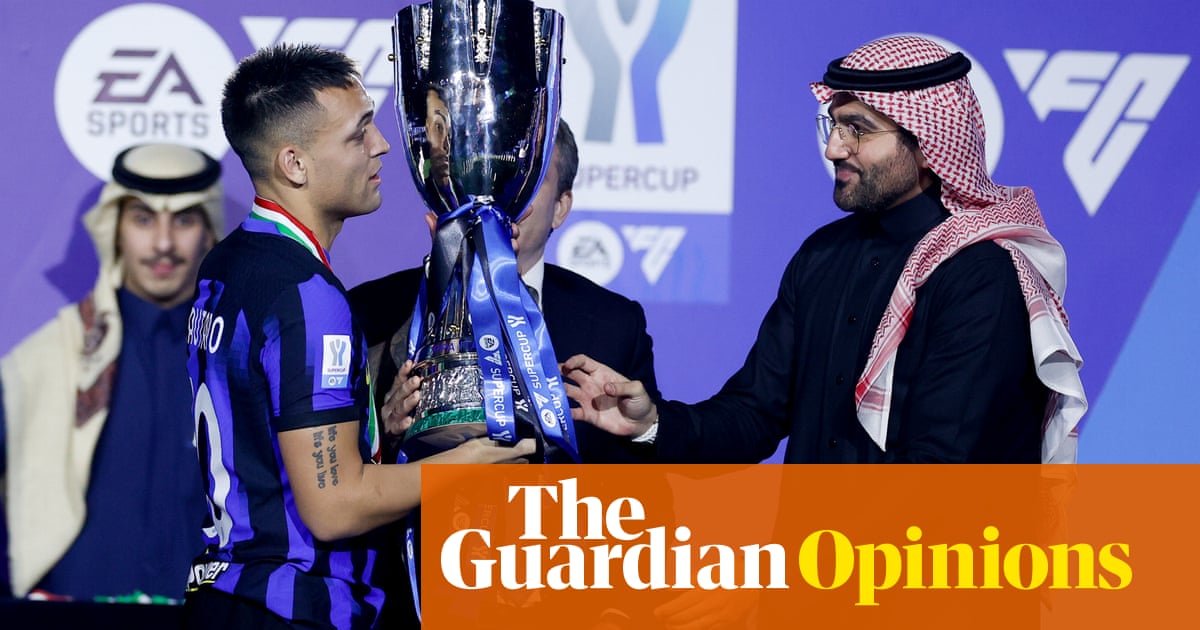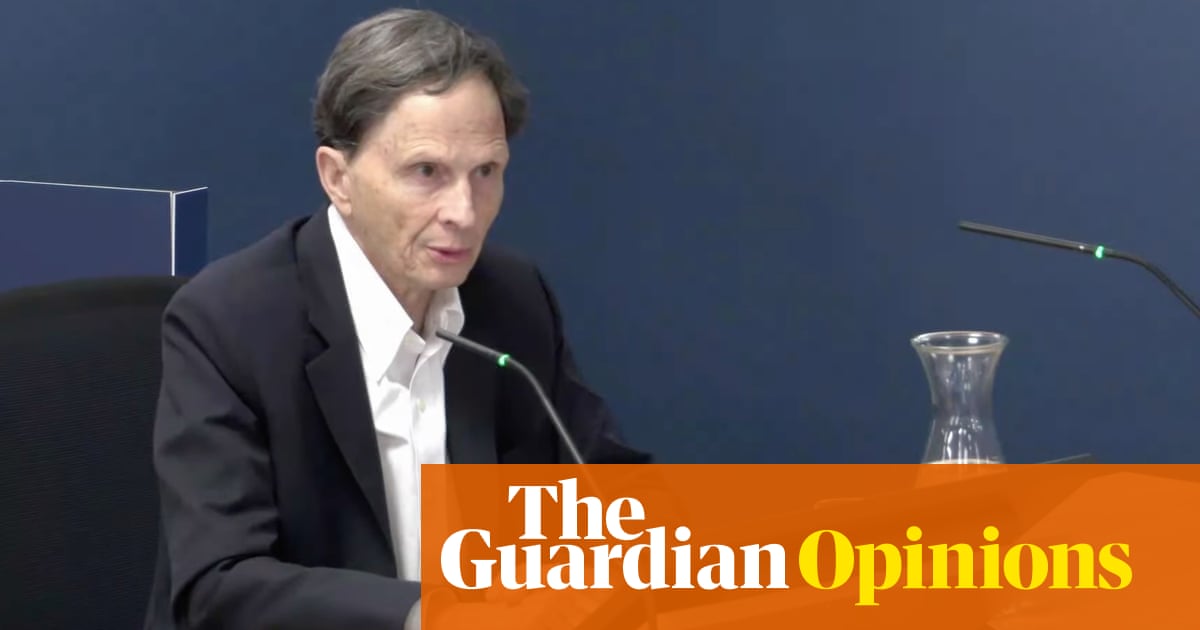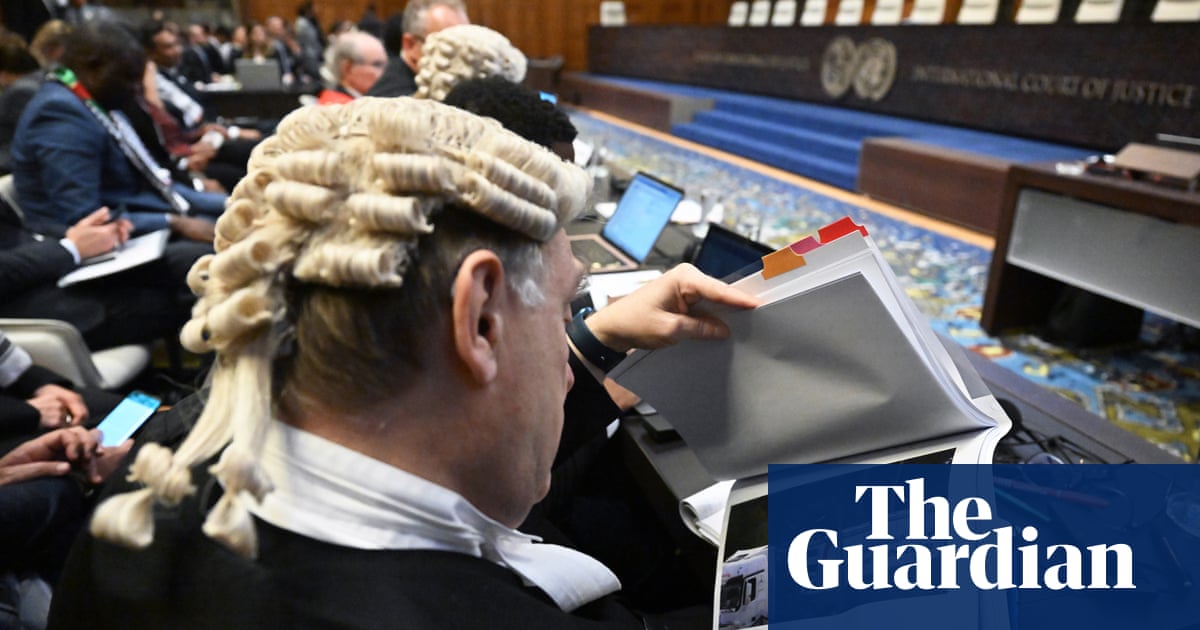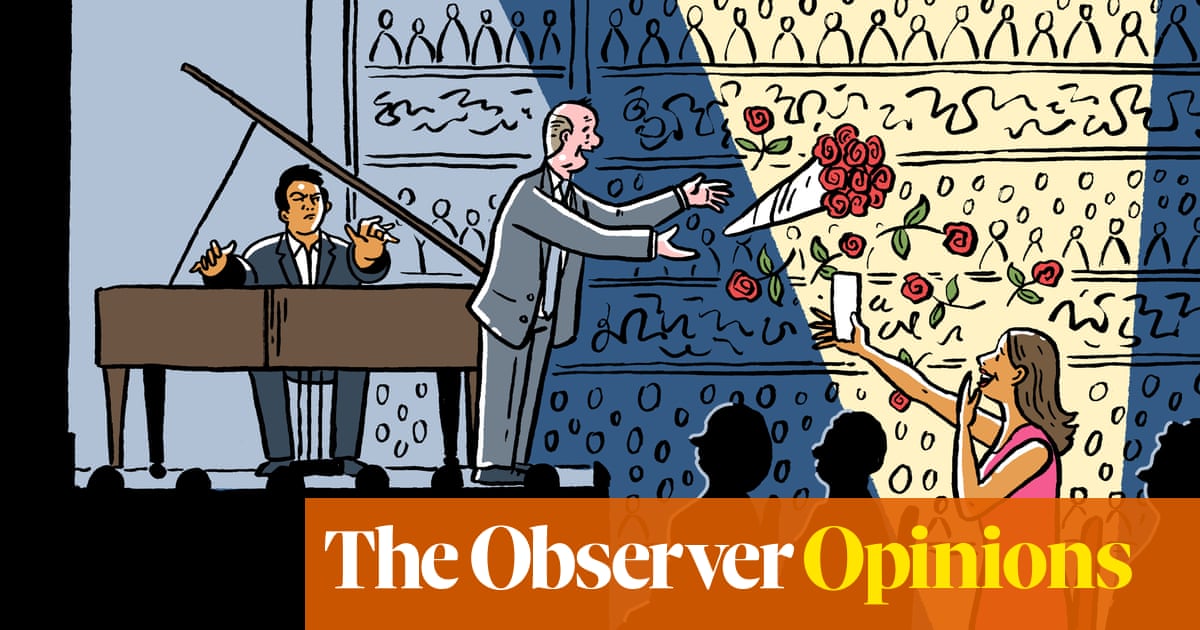
We need a new word for this thing. Psychologists have sometimes used the phrase “semantic satiation” to describe the process where saying the word “woodpecker” 20 times in a row, or sitting in a circle reciting the phrase “straight-leg easy-fit chinos” will eventually strip those sounds of any meaning, as though the entire concept of straight-leg easy-fit chinos has suddenly ceased to exist.
Something like this has happened to the word “sportswashing”. This was always a hopeful coinage, adopted on the hoof to describe governments or other entities that use elite sport as a propaganda tool. Years of heavy use, first by Azerbaijani human rights activists, then Amnesty International, then by the news and sports pages, have left it looking a little baggy.
By now sportswashing has been adopted among apologists as a kind of internet eyeroll, with a vague sense it belongs in the same company as “wokery”, or having feelings or taking offence at an emoji. Here they come. The bleeding hearts. The liberals. The dispossessed and the dead. How serious can something with “washing” in its name really be?
You have to hand it to Qatar 2022. The opening game is just over a month away and still every question, from what words to use, to Ruben Loftus-Cheek’s confusing early-season squad-bolt as an ambling central pivot, leads you back to the same basic ground. Why is the World Cup happening in Qatar anyway?
We still don’t have a clear answer. The consequences and related causes have been examined in granular detail, from Fifa corruption, to human rights abuse to the vainglorious ambition of the hyper-rich. But there is still a blank at the heart of this vast, onerous enterprise; an absence of any real notion of why.
Maybe some numbers will help. This week the last of 200 Royal Air Force personnel were deployed to Qatar’s Dukhan airbase, part of Project Thariyat, a joint World Cup-veiled security mission. Did anyone notice back in 2020 that the RAF had formed a joint air force squadron with Qatar, the only joint squadron with anyone since the second world war? But then Qatar also has 24 shiny new British Typhoon jets and Hawk Mk167s.
And this is not a private party. Welcome to Qatar 2022, where the world comes together, and does so seriously tooled up. Expect Amazing. Expect to be part of a vast geopolitical security operation.
Qatar has 3,250 Turkish security officers. Qatar has South Korean military specialists teaching “close combat skills”. Qatar has Nato looking after chemical, biological, radiological and nuclear threats. Qatari airspace is policed by Kronos radar, Electronic Warfare Compact Airborne Threat Surveyor, the Transmission Data Link SkyDome and the famed DroneHunter attack system.
Qatar has 36 US F-15QA fighter jets and 24 US Apache helicopter gunships. Qatar has 28 NH90 helicopters from Italy, and 36 Rafales and two A330 MRTT aerial refuelling planes from France. Qatar has the eyes of the world. Qatar has the Glastonbury spider. Qatar has David Beckham. And quite clearly in this company the World Cup is a weapon too. The Glastonbury spider is a weapon. David Beckham is a weapon. Perhaps you thought Beckham was simply a tool, or an instrument. But he is also a weapon, and a massive weapon judging by his price tag.
It feels like stating the obvious, but sometimes the obvious has to be stated. What this World Cup is really about is security. Not trying to be liked, or putting on a face for concerned liberals in economically challenged corners of western Europe.
Qatar doesn’t need to be liked, or to diversify into packaged golfing holidays. Qatar has 200 years of natural gas. Absurdly rich and absurdly small, Qatar wants to be visible on the map. This is not sportswashing. This is Hard Sports Power. And in the end we in the are simply bystanders, suppliers, accessories.
It helps to get a little perspective. Qatar declared independence from Britain only in 1972. As a modern self-governing state it’s younger than Gareth Southgate. The years either side of the World Cup bid have been dotted with talk of coups and the Gulf cold war that is the real reason Qatar has such a vast military presence.
The context here is a regional map that reads like the end of the world reinterpreted through a bloodstained Jane Austen drama. Qatar and Iran are friends. Saudi Arabia hates Iran. The United Arab Emirates hates Iran. Qatar and Saudi are pretending, for now, not to hate each other. Everyone hates Israel, apart from the US, which likes Israel while trying to maintain relations with everyone else who doesn’t.
Saudi is on-off with the US but kind of likes Russia and China. China can like anyone who seems useful. Russia laughs darkly at the notion of liking things, while seeking relations with those who can serve its historic destiny to become the new Rome.
In the middle of this, tiny, rich, vulnerable Qatar is out there on its peninsula staging history’s greatest show and taking daily calls from world leaders as war in Europe has created power and peril around its vast gas wealth.
Little wonder the World Cup vibe is a little odd, that even the soft arm of this thing has seemed strangely brutal, from buying Neymar for twice the record fee, blowing up the European transfer market to wave a flag in a moment of border tension; to creating the current toxic inanity around French football’s puppet emperor Kylian Mbappé, spoiled golden child of gas deals, media buyouts and Élysée Palace lunches.
Western colonial powers used football like this in the 19th century, as a lure, a tool, a way of marshalling the locals. Perhaps, in an unlikely historical irony, there is an element of this process in reverse now. Either way, as Qatar 2022 looms closer it seems pretty clear that sportswashing has run its course. Count the drones, the radar systems, the jets. This is Hard Sports Power.












